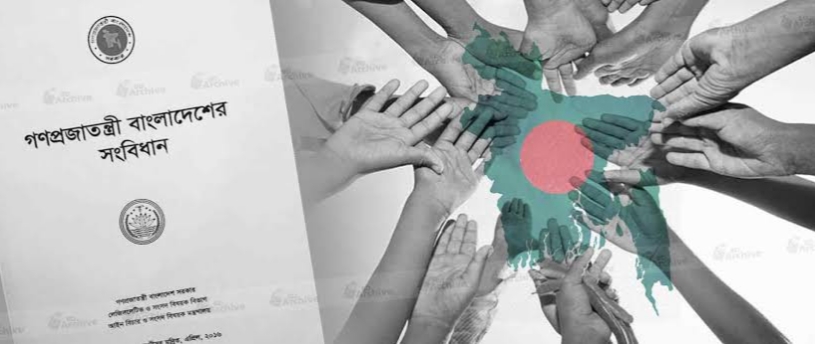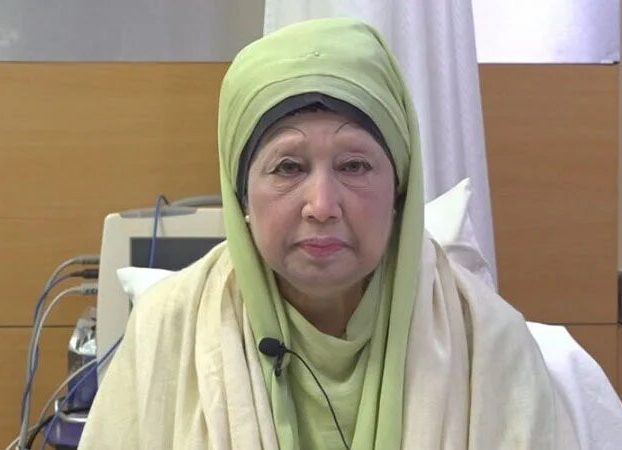
The Constitution of Bangladesh is a constitutional document that defines the country’s state structure, governance and the rights and responsibilities of its citizens. It is considered the supreme law of Bangladesh and serves as the mainstay of the country’s legislative, administrative and judicial branches. The constitution was adopted on December 16, 1972, which is based on the spirit and ideals of Bangladesh’s liberation war.
The Constitution of Bangladesh lays special emphasis on protecting and ensuring the fundamental rights of the people of the country. The fundamental rights enshrined in the constitution are binding on every citizen of the state and are essential for the protection of life, liberty, security and dignity of the citizens.
Role and importance of constitution of Bangladesh
The constitution of Bangladesh serves as the foundation of the country’s democratic structure. It secures the fundamental rights of the citizens of the country and compels the administration and judiciary of the state to be governed within the principles of the Constitution. Bangladesh has been established as an independent, sovereign democratic state through the Constitution, where the sovereignty of the people is paramount.
Structure of the Constitution
The constitution of Bangladesh is divided into 11 parts, which consist of various articles and clauses. In these parts, the governance of the state, responsibilities of the state, fundamental rights, judiciary, legislative process etc. are mentioned in detail. The various articles of the constitution describe the fundamental rights of the citizens of the state, which are equally applicable to all the citizens of the country.
Fundamental rights as described in the constitution of Bangladesh
Fundamental rights are mentioned with special importance in the Constitution of Bangladesh. Fundamental rights are mainly enshrined in Part III (Articles 26 to 44) of the Constitution. These rights guarantee life, liberty, security and dignity to every citizen of the country. Among the fundamental rights of the Constitution some of the main rights are as follows:
Right to equality
Article 27 of the Constitution states that all citizens are equal and entitled to equal protection under the law. No person shall be discriminated against because of his religion, caste, sex, caste or language. It ensures that all citizens of the country enjoy equal rights and opportunities.
Right to legal recourse
According to this right, every citizen of the country is entitled to protection of law and no person can be deprived of his liberty of life. If a person’s fundamental rights are affected by an illegal order or rule, he can apply to the High Court for redress.
Right to freedom of movement and residence
According to this right, every citizen of the country can move freely and live anywhere in Bangladesh. However, certain restrictions may be imposed for reasons of national security, public health or law and order.
Right to freedom of thought and expression
Article 39 states that every citizen of the country has the right to free thought and expression. Citizens are free to express their thoughts and opinions, but this may be restricted in the interests of national security, order, morals and the protection of the rights of others.
Right to religious freedom
Bangladesh is a secular state, and the constitution guarantees all citizens the right to religious freedom. According to Article 41, every citizen can practice, propagate and observe his own religion. However, social order cannot be disturbed due to religious activities.
Right to education
Article 17 of the Constitution states that the state shall ensure free education for all citizens. Education is a fundamental right, which is important for every citizen and the state is committed to ensure it.
Right to personal liberty
According to Article 33, no person can be detained or arrested without trial. He must appear before a judge within 24 hours of his arrest and be informed of the charges against him. Through this, personal freedom and security have been ensured.
Right to equal employment opportunities
According to Article 29 of the Constitution, all citizens have the right to equal opportunities in public service. No person shall be discriminated against on the basis of his religion, caste, sex, caste or political opinion. This right ensures equal opportunity in government jobs.
Anti-exploitation rights
Article 34 states that no person shall be engaged in forced labor and no person shall be compelled to engage in exploitative activities. Such anti-exploitation rights promise freedom and security for citizens.
Environmental rights
The right to environment was included in the Constitution of Bangladesh in 2011 through the 15th Amendment. Article 18A states that the state environment

 Md. Ibrahim Hossain Bishal
Md. Ibrahim Hossain Bishal 


















